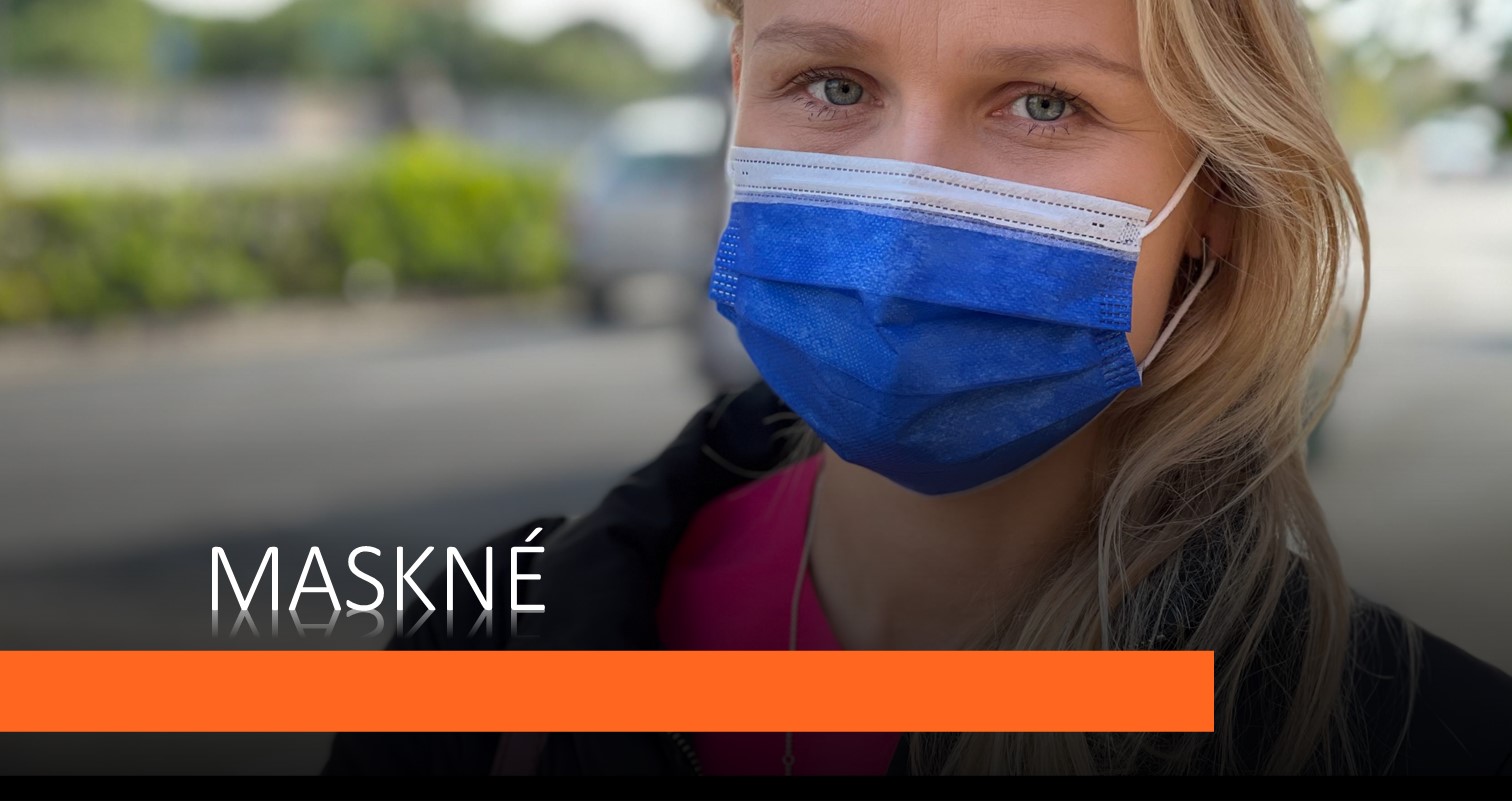
Maskne: how face mask can cause acne breakouts
Following its widespread use as a measure to protect against COVID-19, a new term was introduced: Maskne, a combination of mask and acne, which refers to acne breakouts caused by the prolonged use of face masks. The condition is especially common on acne-prone skin or if the necessary care is not taken to protect the skin of the nose, mouth, chin and cheeks.
Since face masks are mandatory in many countries, particularly in public spaces, wearing them has become a habit every time we leave home.
However, the constant friction of the fabric against the skin, the increase in temperature and humidity in the covered area, plus external factors such as the stress and anxiety caused by the pandemic uncertainty, can affect the normal function of the sebaceous glands, causing inflammation, clogged pores, irritation and pimples.
If you think you may have maskne, the best option is to see a qualified healthcare professional to find out the best treatment depending on each case.
Tips and Recommendations to prevent maskne
According to the American Academy of Dermatology (AAD), these 9 recommendations can prevent and treat skin problems caused by face masks:
- Cleanse and moisturize your face daily
When washing your face, use a mild cleanser. Hydration is important and necessary for any skin type as it adds an extra layer of protection. Choose the right moisturizer for each skin type:
- For oily skin, use gel moisturizer
- For normal or combination skin, use lotion
- For dry to very dry skin, use cream
Always choose moisturizers that have active skin protection and non-occlusive ingredients, such as:
- Dimethicone (silicone)
- Ceramides
- Hyaluronic acid or other hydrating ingredients
- Protect your lips
Chapped lips are also a common problem caused by the prolonged use of face masks. This can be prevented by applying a lip balm based on petroleum jelly or another combination. It is recommended to apply it after washing your face, before putting on the face mask and before sleeping.
- Avoid using makeup
Beneath the mask, makeup is more likely to clog pores, which results in acne breakouts and pimples. If you must wear makeup, only use non-comedogenic products.
- Avoid trying new skin care products
Wearing a face mask can make your skin more sensitive. To reduce skin problems, avoid trying out harsh products, such as chemical peels, exfoliants or retinoids for the first time.
- Stop using certain products if your face becomes irritated
Face products used in the past may irritate your skin when you cover your face with a mask. It is important to watch out for signs, and if you notice that any daily product is causing skin irritation, you should stop using it.
- Wearing the right face mask
The ideal mask should be snug, but comfortable. Make sure it has at least two layers of protective fabric, and choose soft, natural and breathable fabrics, such as cotton, on the inside layer that rests against your skin.
- Take a break
It is recommended to have a 15-minute mask break every 4 hours. Of course, only remove your mask when it’s safe to do so and after washing your hands.
- Wash cloth masks
Washing cloth masks after each use removes oils and skin cells that collect inside, which could lead to skin problems.
- Follow the treatment plan that your dermatologist recommends for you
It is especially important to follow the recommendations of a qualified healthcare professional when it comes to skin conditions.
If you are planning to design your own skin care products for maskne, contact our support team to discover our complete portfolio of personal care ingredients and recommended formulas.
















